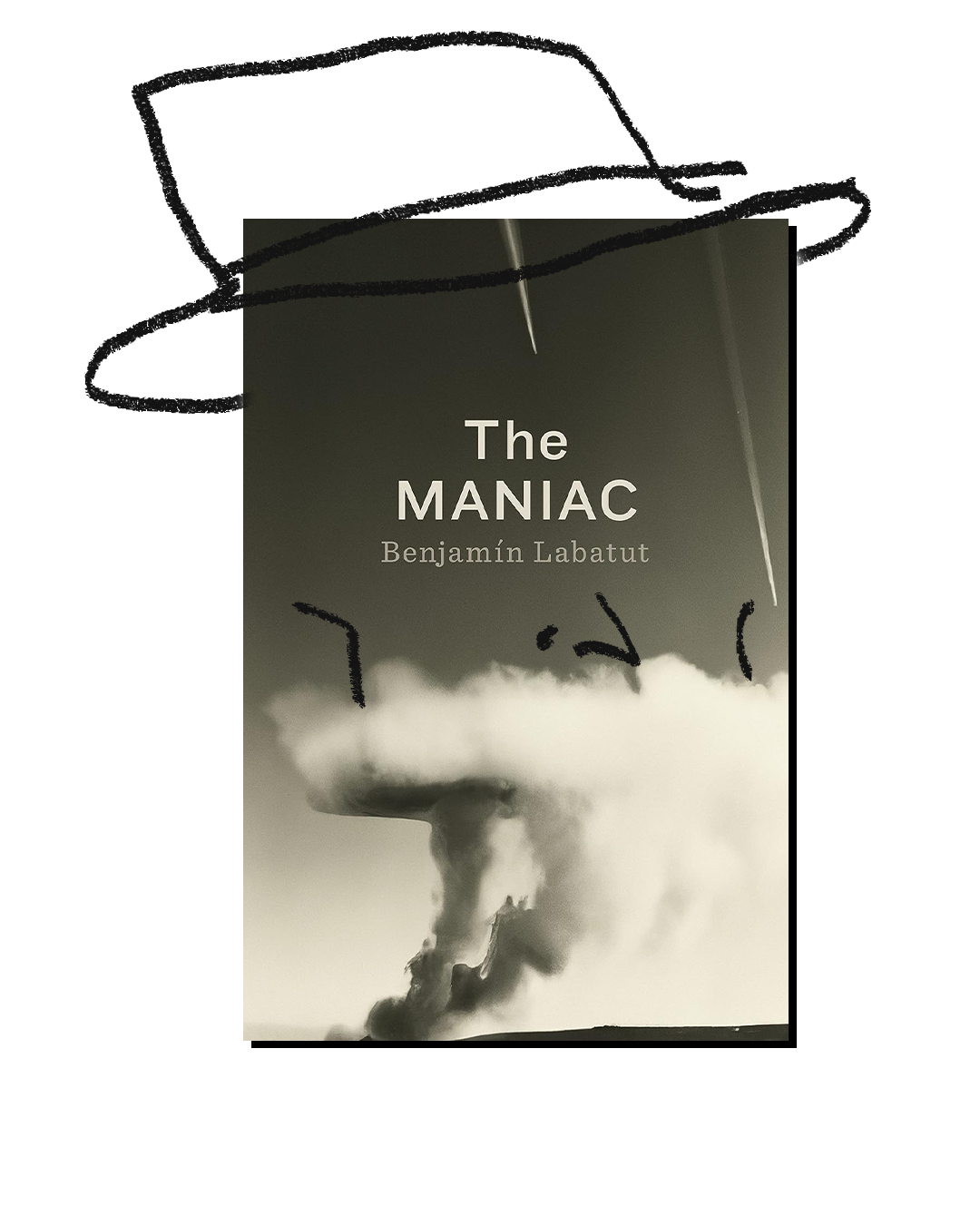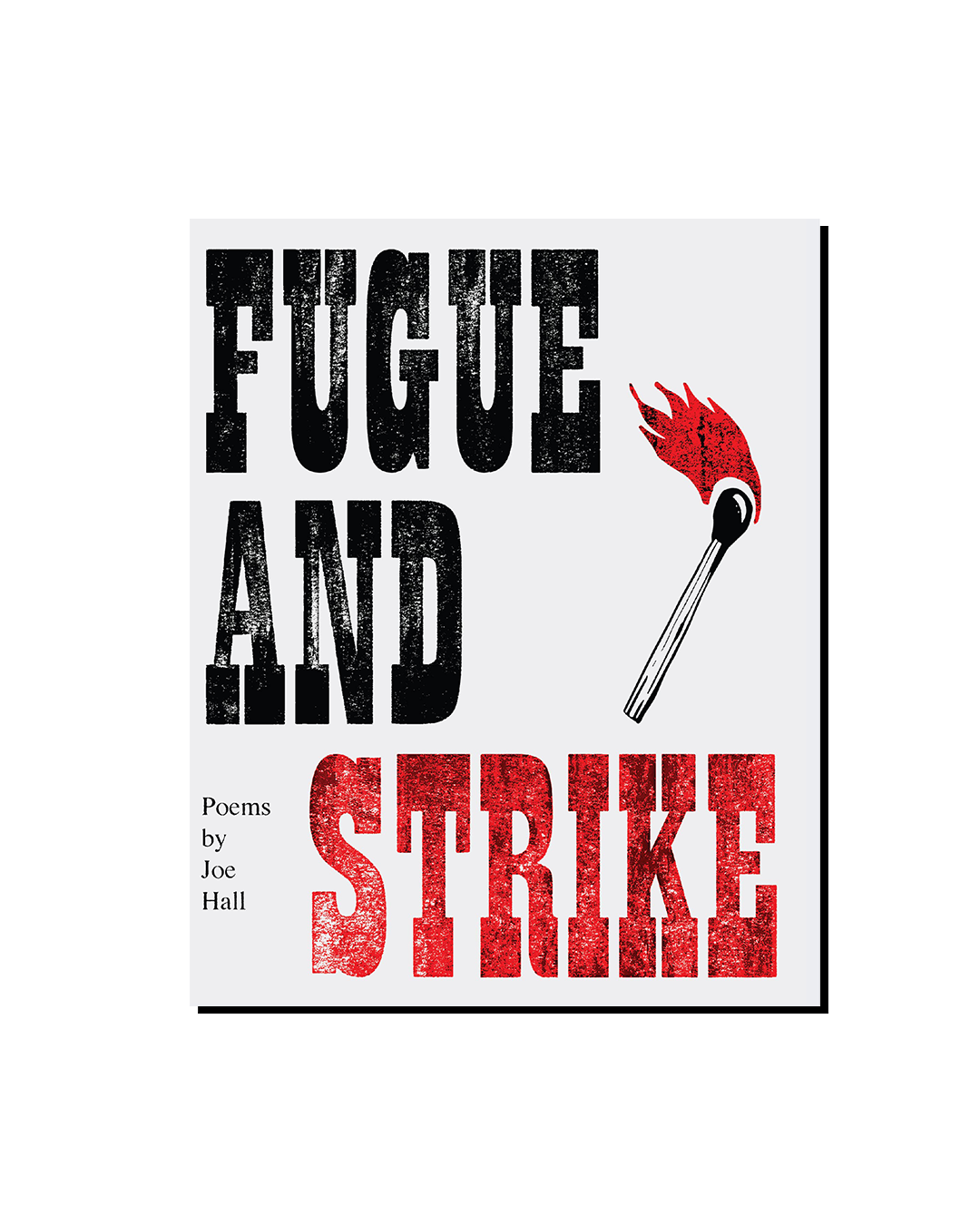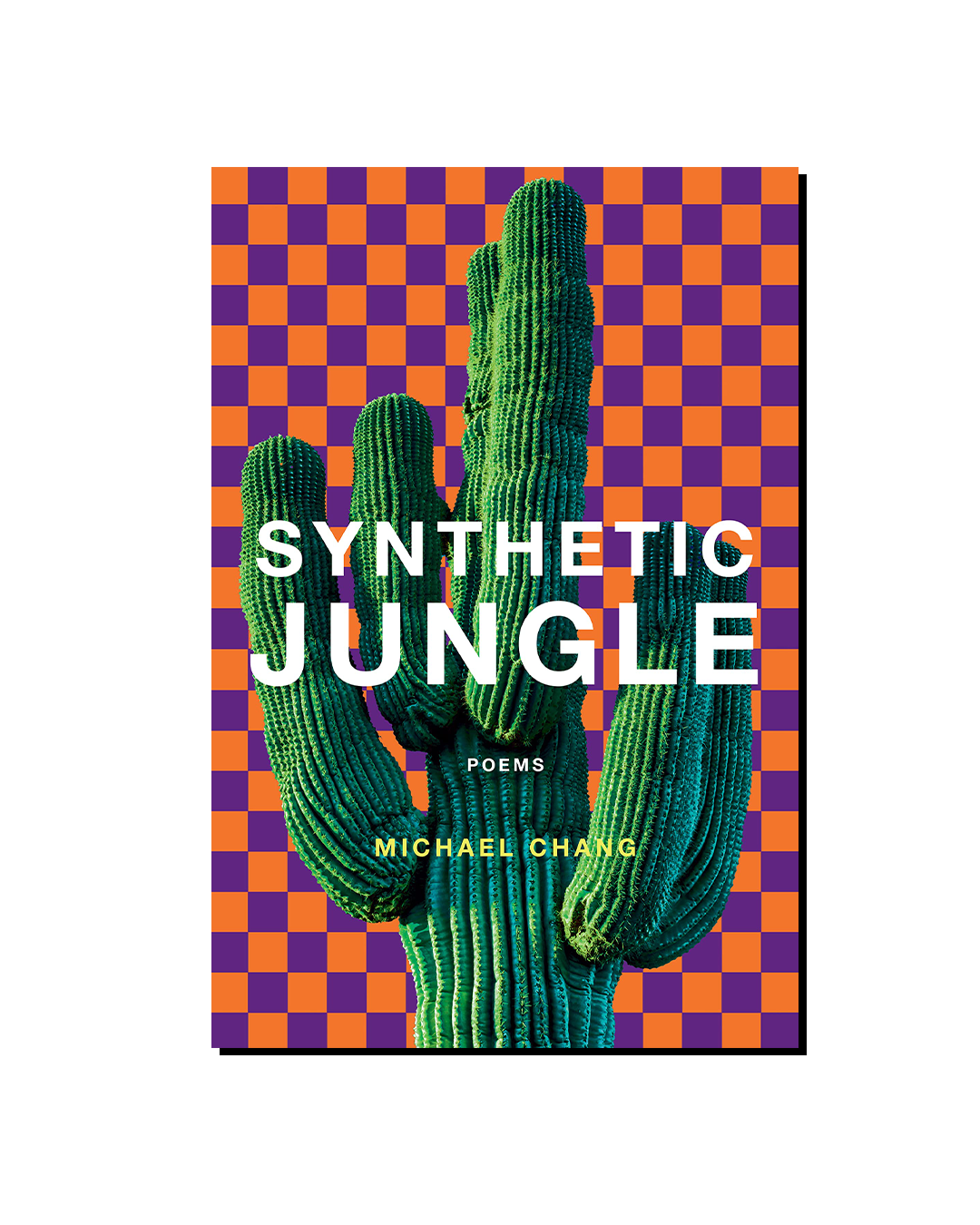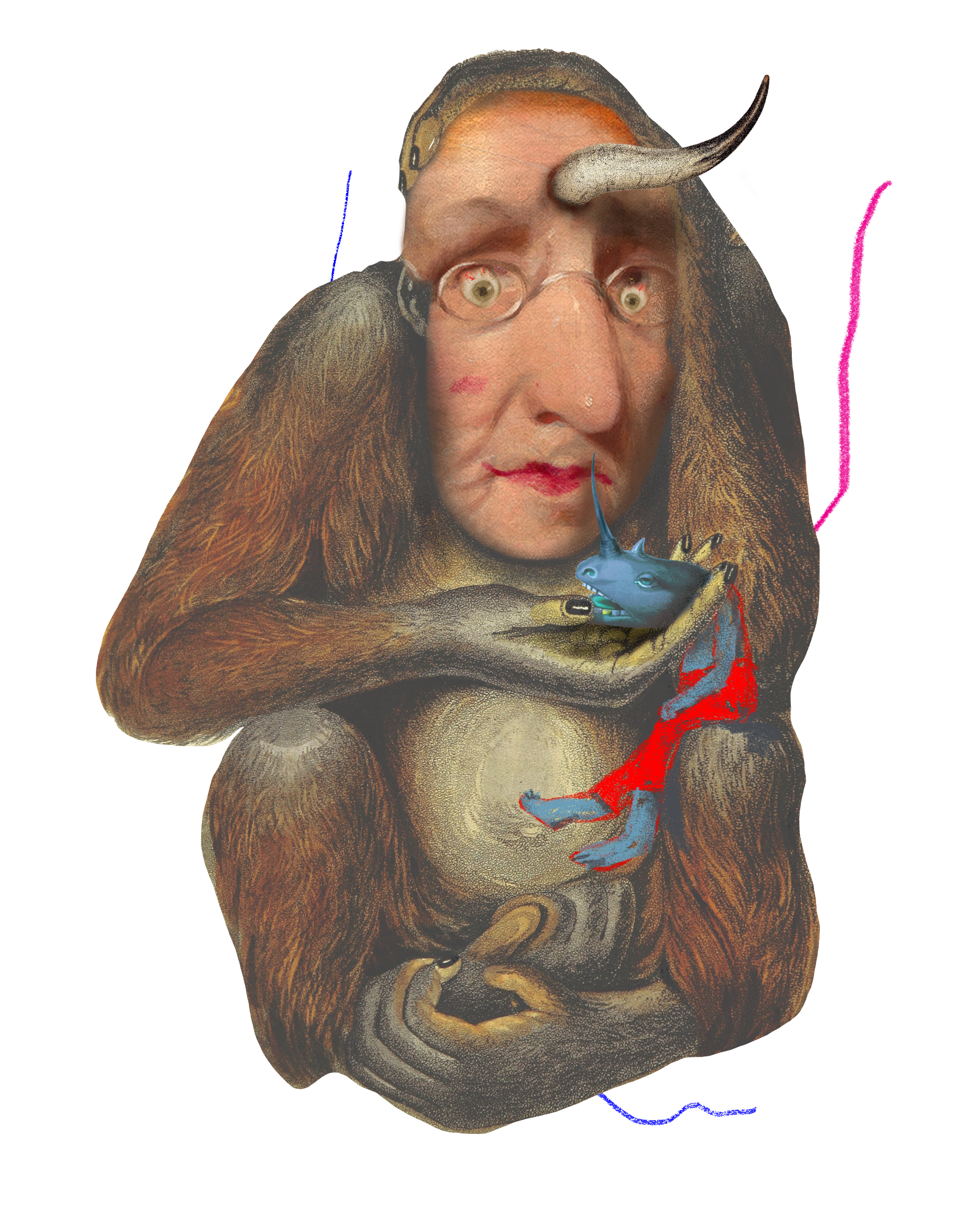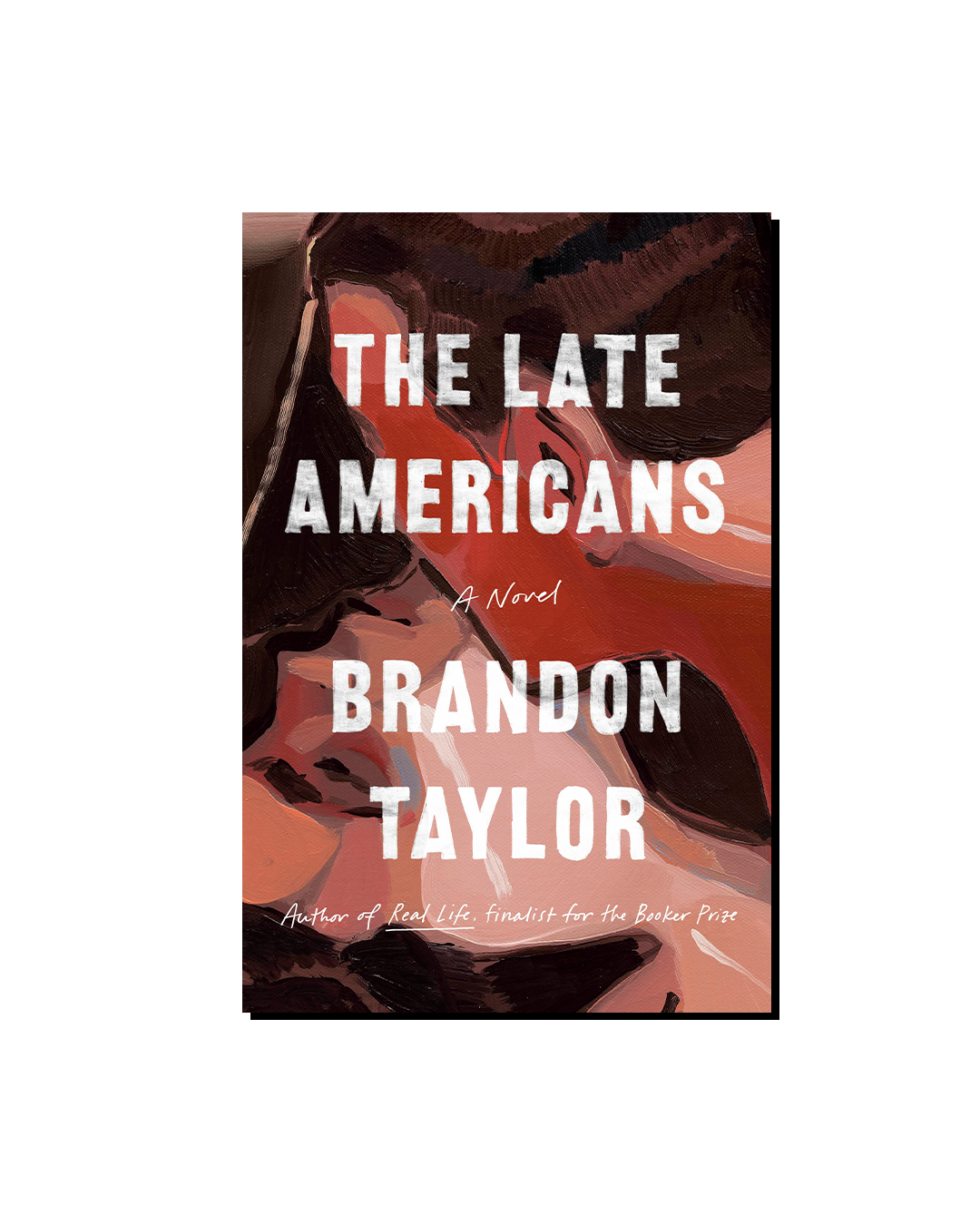Two Poems from “Impersonal Rainbow & The Bisexual Purge”
You make up
the better part
of an expression
That Girl: On Kathleen Alcott’s “Emergency”
The best stories are about people who we don’t really know but think we could. Had we gone to that party we missed; had we been born without that mole.
True Enough: “The MANIAC” and “Oppenheimer”
Culpability is offloaded onto the very idea of science itself: unfeeling, inhuman, inevitable. These warnings do not allow for human ingenuity or variety of thought; they cannot imagine another way. But it’s a poor craftsman who blames his tools.
“BLINKER DESCRIPTION”
to What are you susceptible by description
the there there, when it repeats
Enter the Fugue Zone: On Joe Hall’s “Fugue and Strike”
The text contends that there is such a thing as public space, and that the poet can intervene in it. Moreover, it asserts that Buffalo—a poor, working-class city in the Rust Belt, crumbling from decades of neglect—is capable of ecstatic beauty.
Conditions of Should: On Dana Gioia’s “Meet Me at the Lighthouse”
There are no shoulds besides making marks on a page and arranging those words in a particular order; what’s left is a condition of the present, of taste which cannot exactly be spoken to before it changes.
50 Ways to Leave Your Letter: On Michael Chang’s “Synthetic Jungle” (Excerpt)
do we live here — wedreamstories&scenesbutwedontlivethem (Notley) — or here — ppleatcronuts&frankoceanieatbusilybetweenyourlegs (Chang)
Antagonistic Forms: A Conversation with Quenton Baker
And maybe that brings us to the myth of chronology: linear time equals progression. No. There is no linear progression and we’re reproducing subjection again and again.
Dirty Work: On Irene Silt’s “My Pleasure” and “The Tricking Hour”
Writing histories of struggle alongside imagined futures of collective care, there is no isolated subject. Silt’s essays and poems serve as a sprawling manifesto, showcasing the peculiarities of pleasure under capitalism.
Quarter in Review: On the A****-G****, Residential Electricity, Deserves, Nostalgia, and Agnès Varda
Such as, I keep misreading these preceding instances of the term “a****-g****” as “agnès-varda.”
Supposing maybe this is all anybody ought to be asking.
Told by an Idiot: On Jaroslav Hašek’s “The Man Without a Transit Pass”
Hašek is mocking authority and bourgeois respectability, of course, but the criticism is ultimately of the individual’s inability to tolerate being the butt of a joke. If the universe is absurd, then we shouldn’t be so foolish as to take it seriously.
Marvelous Writing: The Sentence Will Save the Form
To squabble over genre would be to take away from the very potent delight of these kinds of tales: a capacity to traverse an enormous affective range, to play lightly at the surface of life and to sink to tragic human depths.
from “An Extremely Well-Funded Study of Doors”
Consider this pamphlet a set of buyer’s notes, a thorough investigation under the orders of academizing burglars. The question you must then ask yourself is: is the nicest door a door one can buy, a door one must take, or a door one must build?
Weeding or Writing: On “Henry at Work”
Their most valuable contribution comes not from extrapolating what “Thoreau would say” about contemporary problems, but in showing where his ideas can lead us when paired with a more robust sense of class consciousness and a stronger drive for action.
Cis Gender Studies
In a time of ever-escalating state violence towards intersex, gender non-conforming, and trans people, what do cis scholars writing about gender owe their subjects?
Nomadic Hedonism: On Robert Plunket’s “My Search for Warren Harding”
The most beguiling aspect of My Search for Warren Harding is the way Plunket manages to discount the meaning of romance, literature, and history to such an extent that none much help us read his novel.
from “The Motherwell Sonnets”
“An Elemental Rust,” says Dickinson. I grew it on the inside of a can. A rustling effect. A chandelier. A .22. Its cartridges. A bit of window screen patching a screen and a dried bee. A contact lens.
Machine in the Garden: On Marty Cain’s “The Prelude”
Rather than a rurality for tourists, a land recast as a bourgeois playground pervaded by natural and cultural heritage, Cain attempts a rurality that is grotesque and potent. He performs a pastoral contaminated by history.
Out in the Middle West: On “Somebody Somewhere”
The show narrates queer and trans characters in ways that negate old tropes about being stuck in the closet in backwards small-town America. They are simply unglamorous, everyday people.
I don't want to talk about it: On Brandon Taylor’s “The Late Americans”
Taylor’s characters fail to reconcile deeper emotional desires with the reality that their immediate environment is not a place to escape, but rather the very territory in which “real life” happens.



